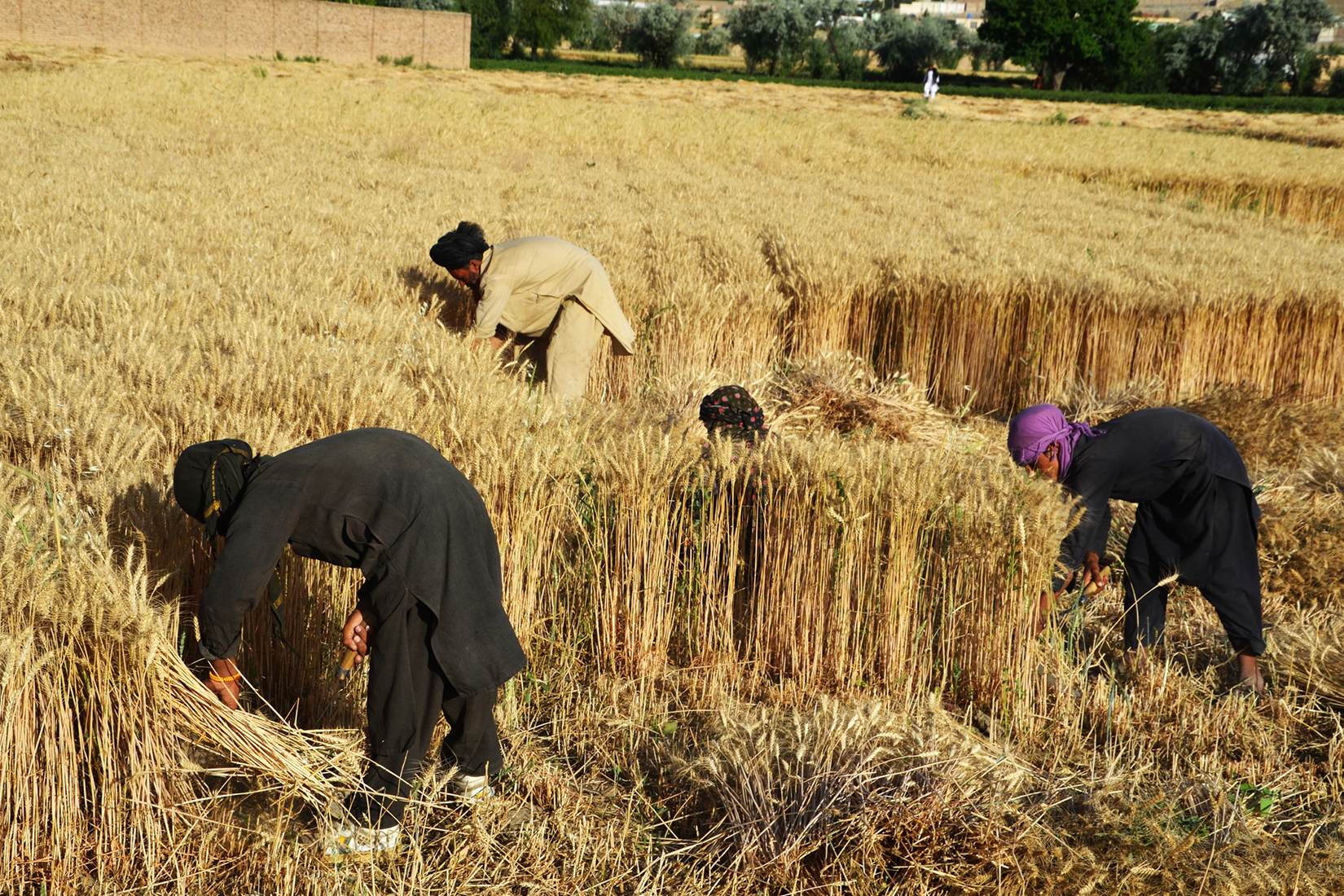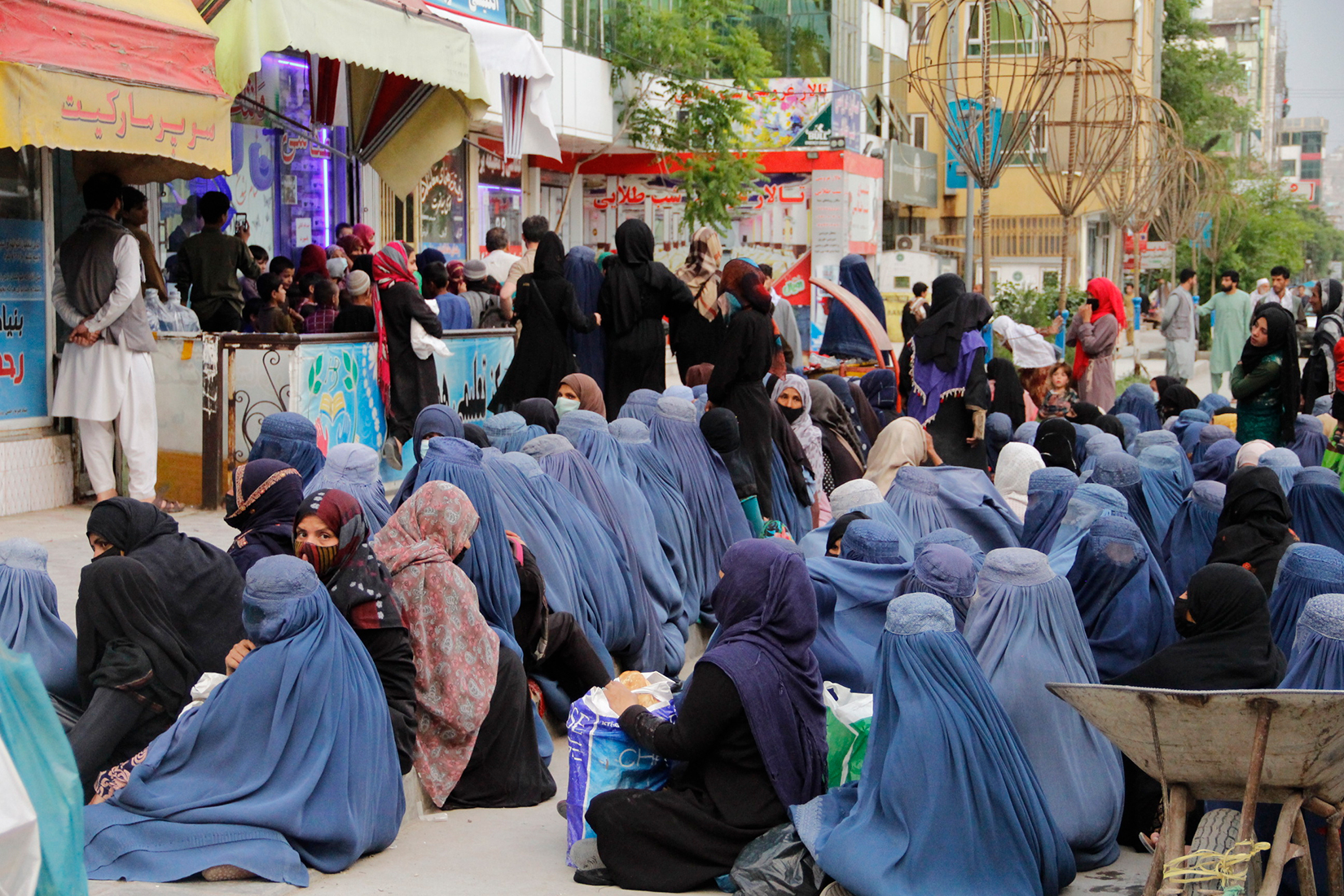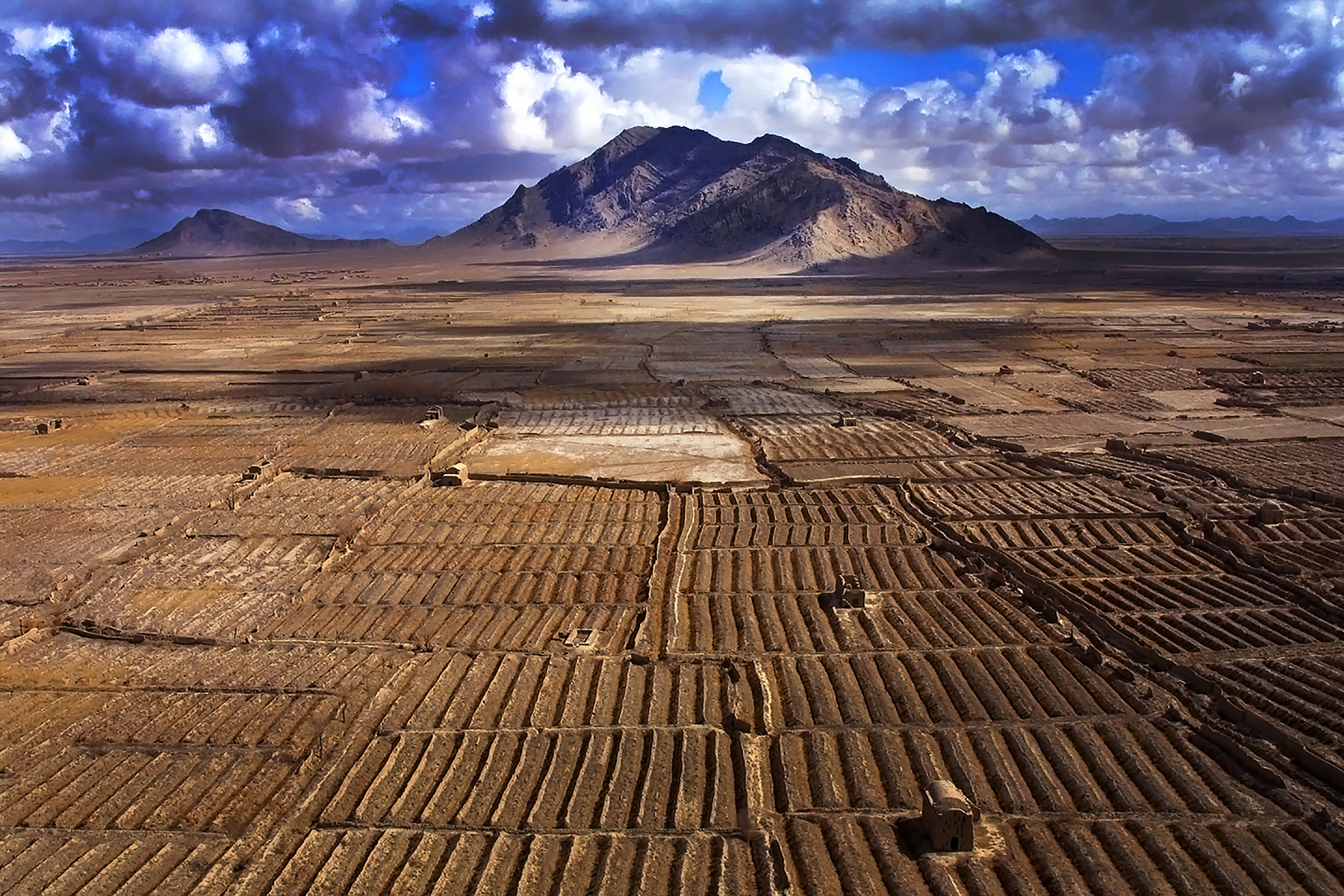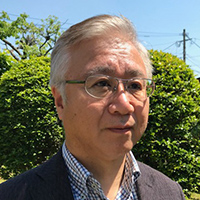Introduction
The serious humanitarian crisis situation in Afghanistan is still going on currently, when two and a half years have passed since the second rule of Afghanistan by the Taliban regime started, and that regime is continuing to violate the human rights of women and girls and pressure the members of the media. [1] For this reason, the international community, especially the Western countries, has not recognized the regime, and bilateral assistance to Afghanistan has stalled, except for emergency humanitarian assistance.
Under such circumstances, the international community has been aiming to improve the situation, for example by adopting the United Nations (UN) Security Council resolution described below, but even before this the Government of Japan cooperated with the Food and Agriculture Organization of the United Nations (FAO), the NGO Peshawar-kai, and the local NGO Peace Japan Medical Services (PMS), which is assisted by Peshawar-kai, to commence a project with the purpose of increasing food production. In order to resolve the humanitarian crisis in Afghanistan, firstly it is important for food to reach all of the citizens and for that process to become sustainable. Food production must be increased in each region of Afghanistan to achieve this. If this point is taken into account, a project for increasing food production can be evaluated to be necessary for resolution of the humanitarian crisis.
Afghanistan was self-sufficient in food before the invasion by the Soviet Union in 1979, and some of its food was exported. The potential to increase food production exists. Peshawar-kai initiated the Green Ground Project in 2002 and succeeded in securing food for 650,000 people. [2] Based on this example, if the Government of Japan is able to mediate and cooperate with the FAO to spread the know-how regarding increasing food production cultivated between Peshawar-kai and local Afghans throughout Afghanistan, food self-sufficiency may come in sight.
In this paper, I examine the response of the international community and discuss the current situation and potential of the joint activities of the Government of Japan, the FAO, and NGOs for increasing food production in Afghanistan.

The current situation in Afghanistan and the response of the international community
On February 21, 2024 the United Nations, the World Bank, the European Union (EU), and the Asian Development Bank (ADB) jointly released an evaluation report stating that a total of 402.9 million dollars was necessary for recovery and reconstruction from the damage and losses caused by the major earthquake which occurred in Herat Province, Afghanistan, in October 2023. [3] Furthermore, according to Japan for UNHCR, 29.2 million people, approximately half of the citizens, require humanitarian assistance, and 15.3 million people are suffering from food insecurity. [4]
In response to this situation, the UN adopted Security Council Resolution 2721 on December 29, 2023. [5] This resolution encouraged the UN Member States and other relevant stakeholders to consider the implementation of the recommendations of the independent assessment for taking action on the issues faced by Afghanistan, and requested that the UN Secretary-General appoint a Special Envoy for Afghanistan who would bear the role of encouraging the implementation of said recommendations.
The Government of Japan played a central role in the adoption of this resolution as the co-penholder of the resolution with the United Arab Emirates (UAE). The statement by Japan’s Foreign Press Secretary made the following statements regarding improvement of the humanitarian situation of Afghanistan. [6]
- As the Taliban is further increasing restrictions on the rights of women and girls and deepening its isolation from the international community, Japan hopes that this resolution will contribute to the improvement of the situation surrounding Afghanistan as well as to the peace and stability in Afghanistan and the region.
- In light of the recommendations of the independent assessment, Japan will contribute more actively toward the formation of a coordinated approach by the international community to the challenges Afghanistan faces.
- With a view to preventing further deterioration of the humanitarian situation in Afghanistan, Japan continues to provide humanitarian assistance and basic needs assistance to the Afghan people in cooperation with the international community.
- Japan will make persistent effort in directly engaging with the Taliban to change their course, in order to ensure respect for human rights of all Afghans, including the elimination of measures that restrict the rights of women and girls, and political inclusiveness.
Looking at the press release of the UN Security Council, the points each country emphasizes in its comment on the adoption of the resolution are different, [7] but we can reach the conclusion that the resolution was adopted largely in accordance with the problem awareness of the Government of Japan.

Assistance by the Government of Japan, the FAO, and NGOs for increasing food production
As stated in my previous discussions, [8] the private sector humanitarian assistance of Japan should be strengthened to contribute to the increased production of food for the improvement of the humanitarian situation of Afghanistan. Concerning this, on August 30, 2023 the Japan International Cooperation Agency (JICA) signed a grant agreement with the FAO concerning grant cooperation of approximately 9.5 million US dollars (1.328 billion yen) for the Project for Enhancing Agriculture Production through Community-led Irrigation. [9]
According to the explanation given by the FAO Office in Japan, [10] this project is facilitated by JICA and is a four–year project which, in the context that more than 12,600 men, women, and children in the Kunar Province [11] of eastern Afghanistan have been placed in poverty and food insecurity, has been established to provide assistance for increasing the amount of irrigated agricultural land, boosting local food production, and strengthening food security to enable the people to make a living with more resilience. Furthermore, the explanation states that this project will also provide direct environmental benefits to local communities, helping to protect fragile rangelands and recharge vital groundwater resources, particularly in the context of the increasing impacts of the climate change.
Noteworthy is that it is clearly stated that the project is aiming to build on and enhance the Green Ground Project initiated by Dr. Tetsu Nakamura and the PMS in 2003 to build irrigation systems in the Kunar River Basin and that the project will be advanced based on technical cooperation assistance from the PMS. The current project will rehabilitate the Nurgal irrigation canal in Kunar Province, improving both the quantity and reliability of irrigation water for agricultural production and increasing the total command area – the agricultural land irrigated by the canal – by 70 hectares to a total of 643 hectares, leading to both increases in overall agricultural production and increases in productivity of at least 12 percent. Furthermore, the project will enable food insecure rural households to plant two crops a year, rather than just a single wheat crop, boosting incomes, resilience and food security. It is stated that the project will also deliver benefits to communities, helping to protect more than 2,000 hectares of fragile rangelands through improved and adapted plant varieties and helping to recharge important groundwater resources.
The PMS has a track record of irrigating 23,800 hectares and eliminating food insecurity and improving livelihoods for over 650,000 people between 2003 and 2023. [12] This track record has been recognized by the Government of Japan and the FAO, and the PMS method of helping people so that they can manage and use their own irrigation systems appropriately has been adopted. It is stated that in this project the PMS dispatches experts to provide training on the PMS method to local technical experts and provide training concerning operation and maintenance to water users in local communities so that they can manage their irrigation systems effectively and sustainably, with the aim of maintaining the outcomes and effects of this project over the long term. [13]

The current and future contribution of Peshawar-kai and the PMS to this project
As stated above, the contribution of the PMS to this project is large. The FAO is already providing assistance for the strengthening of resilience in all 34 provinces of Afghanistan, and if this project succeeds it can be expected that the irrigation projects using the PMS method will spread throughout all of Afghanistan and make an enormous contribution to the elimination of food insecurity in the country.
The Government of Japan recognized the outcomes of the Green Ground Project initiated by Dr. Tetsu Nakamura and decided to cooperate with the FAO on a project for irrigation and increasing food production using the PMS method. Takashi Okada, the then Japanese Ambassador to Afghanistan, commented that “Japan will work together with FAO on this Dr. Nakamura’s legacy project to enable local communities to manage precious water resources and develop sustainable agriculture. Japan will continue to support Afghans to help themselves so that they can rebuild their livelihood and once again stand on their own feet.” [14] Furthermore, the PMS also listed the FAO-PMS joint project, or a plan to disseminate the PMS irrigation method, as one of the four pillars of the FY2023 project plan, [15] and gave a report in the Peshawar-kai Newsletter regarding the signing of the JICA/FAO joint project and the framework of the project (Japan providing funds to the FAO and the PMS carrying out technical assistance for the purpose of dissemination of the irrigation projects using the PMS method). [16]
I would like to express my respect for the efforts of everyone involved in building up this framework consisting of the joint work of JICA, the FAO, and the PMS. This project was realized because JICA, or in other words the Government of Japan, recognized and highly evaluated the many years of efforts by the PMS and its contribution to increasing food production and regional stability, and then converted those efforts into policy.
The NGOs of Japan are engaged in pioneering activities in regions around the world. There are cases in which it is not appropriate for the government to provide direct bilateral assistance, such as the case of Afghanistan where the government is not recognized and there are serious violations of human rights by the regime, but private sector humanitarian assistance by NGOs is one effective method. To the best of my knowledge, there is one example of this kind in which an initiative for the dissemination of maternal and child health handbooks in Vietnam, originally begun with the assistance of an NGO, received the cooperation of JICA when the handbooks were subsequently disseminated nationwide in cooperation with the Government of Vietnam. Going forward, it is desirable for the government and the NGOs of Japan to continue to cooperate, while including local NGOs and international organizations as appropriate, for the resolution of issues in countries which are still developing or are not able to maintain security.
(2024/04/15)
Notes
- 1 In January an incident occurred in which an Afghan media assistant with Kyodo News was taken into custody. Takashi Ishihara, “Taliban Rulers of Afghanistan Release Afghan Assistant with Kyodo News, Accelerate Crackdown on the Media,” Asahi Shimbun, January 25, 2024.
- 2 The Green Ground Project was announced in 2002 and the irrigation projects were commenced in 2003. For the details please refer to Peshawar-kai, “Irrigation Projects.”
- 3 “UN Reports Staggering US$ 402.9 Million in Recovery Needs Following Last Year’s Earthquakes in Herat, Afghanistan,” United Nations in Afghanistan, February 21, 2024.
- 4 Japan for UNHCR, “October 2023 Afghanistan Earthquake.”
- 5 “Adopting Resolution 2721 (2023), Security Council Requests Secretary-General Appoint Special Envoy for Afghanistan,” Meetings Coverage and Press Releases (SC/15548), United Nations, December 29, 2023.
- 6 Ministry of Foreign Affairs of Japan, “Adoption of the United Nations Security Council Resolution 2721 on the Situation in Afghanistan (Statement by Foreign Press Secretary KOBAYASHI Maki),” December 30, 2023.
- 7 Refer to Note 5.
- 8 Nobutaka Miyahara, “Report on Implementation of the Operations of the Japanese Embassy in Afghanistan from a Humanitarian Perspective: Expected to Lead to the Strengthening of Japanese Diplomacy,” International Information Network Analysis (IINA), December 27, 2022; “Middle East Diplomacy to Secure a Stable Supply of Oil: A Comprehensive Interpretation of Humanitarian Assistance and Economic Cooperation,” International Information Network Analysis (IINA), March 20, 2023; “The Increasingly Serious Human Rights Problems in Afghanistan: Dialogue with the Taliban Required,” International Information Network Analysis (IINA), June 22, 2023.
- 9 Food and Agriculture Organization of the United Nations (FAO) Liaison Office in Japan, “Afghanistan: Community-based FAO Irrigation Project Receives Support from Japan,” August 30, 2023.
- 10 Ibid.
- 11 The province north of Nangarhar Province where the PMS is active, and the upriver region of the Kunar River.
- 12 Japan International Cooperation Agency, “Signing of Grant Agreement for Afghanistan: Contributing to Improved Agricultural Production through Irrigation Methods Practiced by the Late Dr. Tetsu Nakamura, in Cooperation with the FAO, Peshawar-kai, and the PMS,” August 30, 2023.
- 13 Refer to Note 9.
- 14 Ibid.
- 15 Peshawar-kai Newsletter, June 28, 2023, No.156, p. 5.
- 16 Peshawar-kai Newsletter, September 27, 2023, No.157, p. 6.

